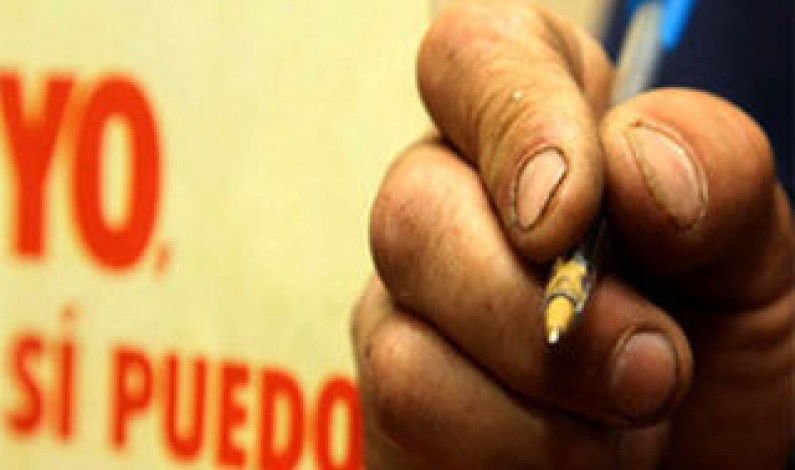‘Yes I Can:’ A Cuban innovation gone global


In September 1960, Fidel Castro stood before the United Nations assembly in New York and promised to wipe out illiteracy in the island by the end of the following year. The campaign that followed was known as the Cuban Literacy Campaign, which took their literacy rate to 96%, one of the highest in the world.
Following this tradition, almost 40 years later the Yes I Can (Yo si Puedo) adult literacy program was developed by the Latin American and Caribbean Pedagogical Institute of Cuba (IPLAC). It aims to provide free education to adults who did not have the opportunity to attend school as children.
The program has shown to be uniquely effective because it uses pre-recorded videos adapted for each country that are delivered by a local facilitator. Also, it’s designed to last between seven to twelve weeks depending on how much free time people have to study.
Since 2002 it has been translated to different languages like English, French, Portuguese and indigenous languages like Quichuan, Aymara and Swahili.
According to IPLAC, Yes I Can is now being used in more than 30 countries like Nigeria, Venezuela, Spain, Canada and Australia and has taught more than 10 million people around the world. Its most successful case is perhaps Venezuela where it was adopted in 2003 and two years later UNESCO declared the country illiteracy free.
In 2006 IPLAC was awarded the UNESCO King Sejong Literacy Prize for its work “to advance individual and social potential through innovative teaching methods with successful outcome.”
Outside basic literacy the program also covers subject relevant to each country. For example, in the Uruguayan case assessed by UNESCO Yes I Can covered subjects such as hygiene, caring for the elderly and conserving nature. It also used local musicians to provide background score to the televised lessons. Because of its success in the country, the government decided to implement it in several prisons, a psychiatric hospital and in the armed forces.
Today, nearly 17% of the world’s adult population remains illiterate, but programs like Yes I Can could change the numbers. For example, just this week it was reported that it is being used by Brazil’s Landless Rural Workers’ Movement to educate 7,000 adults in the state of Maranhão.





